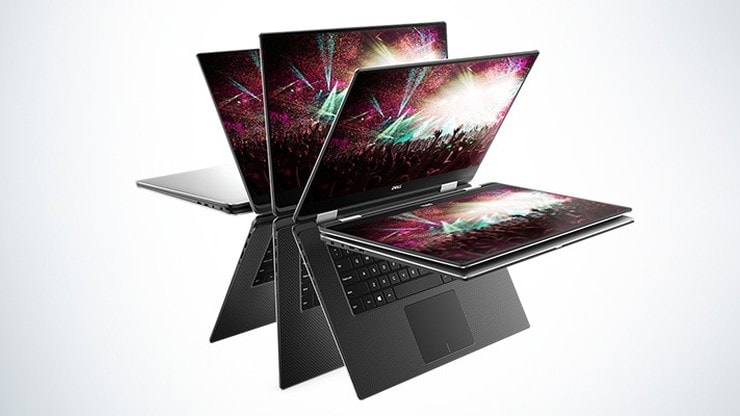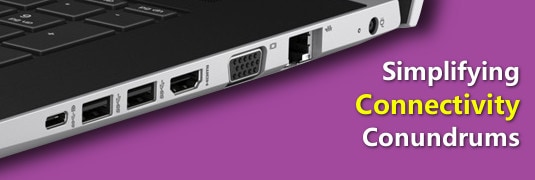Choosing a laptop is hard enough and the confusion created by the sheer number of processor models and names only makes this a harrowing process. Why can’t choosing a laptop based on processors be any simpler? That’s easier said than done, but if you’re armed with the right information, you can go from being a clueless laptop buyer to an expert on the subject. This article is dedicated to doing just that – demystifying, organizing and telling you just what you need to know – what’s the processor your next laptop ought to have, what it’s good for, and what it isn’t.
Why are buying processors so important? As we’re told repeatedly, they are at the heart of any device so they must be critical. It’s true – the faster the processor, the better your games and software will run. Rather than getting into the fine details of every processor, it is easier to try and imagine what software and games you wish to run. Depending on what you use the most, you should be able to pinpoint the laptop and processor that suits your needs. This table should give you some idea of what processor you might need at the very least to let software run smoothly. We aren’t talking about graphics cards in this feature but it is an important part of buying any laptop too. We have a feature around laptops graphics solutions.
This table should give you some idea of what processor you might need at the very least to let software run smoothly. We aren’t talking about graphics cards in this feature but it is an important part of buying any laptop too. We have a feature around laptops graphics solutions.
| Activity | CPU-intensiveness | Processor Family and Series |
| Browsing and chatting | Low intensity | Intel Celeron, Intel Pentium, Intel Core i3, AMD A4, AMD A6 |
| Streaming and watching content | Low intensity | Intel Core i3, AMD A8, AMD A9, AMD A10, AMD Ryzen 3 |
| Office work | Average intensity | Intel Core i3, Intel Core i5, AMD Ryzen 3, AMD Ryzen 5 |
| Programming | Average intensity | Intel Core i5, Intel Core i7, AMD Ryzen 5, AMD Ryzen 7 |
| Gaming | High intensity | Intel Core i5, Intel Core i7, AMD Ryzen 5, AMD Ryzen 7 |
| Designing | High intensity | Intel Core i7, Intel Core i9, AMD Ryzen 7 |
One must remember, is that a faster processor is generally a better idea. Even if you are someone who wants to use the laptop for just browsing web pages, watching some videos on YouTube, a faster processor won’t make that experience a lot better today, but years from now when browsers and other software are more processor-intensive, you won’t need to upgrade to a newer laptop sooner. That extra money spent today will last you longer. It’s important remember that laptop processors can’t be upgraded like you can on desktops.
If you’ve made sense of the table, you can also visit Intel and AMD’s web sites where you can find specifications for the latest models within the families of products we’ve mentioned above.
Faster core speeds doesn’t mean a processor is always faster
Back in the day when processors could be identified by their core speeds, things were simpler. You would know that a 2 GHz processor was faster than a 1.4 GHz one. It’s important to know that it isn’t the rule anymore. You will find high-end laptop processors clocked at lower speeds than entry-level ones running at 3.2 GHz or so. This is due to several factors that go into the processor such as the number of cores, the optimizations, amount of cache, etc. The basic rule is the faster core speed, may not always translate to better performance. The families and ranges are a better indication.
What do you get when you spend more on a laptop?
Number of cores
 You’ll find the term, cores being thrown around everywhere in smartphones and in laptops. The number of cores is usually decided by what series of processors you’re looking at. Intel’s entry-series of Core i3 processors for example come with a 2-core configuration. 4-core, and sometimes, 6-core processors can only be found on Core i7 or Intel Core i9 processors. The number of cores allows software with multiple threads to run faster. Some brands might have entry-level processors with many cores but they aren’t always as fast as high-end processors with fewer or the same number of cores. The pricing of laptops generally corresponds to the performance their processors offer.
You’ll find the term, cores being thrown around everywhere in smartphones and in laptops. The number of cores is usually decided by what series of processors you’re looking at. Intel’s entry-series of Core i3 processors for example come with a 2-core configuration. 4-core, and sometimes, 6-core processors can only be found on Core i7 or Intel Core i9 processors. The number of cores allows software with multiple threads to run faster. Some brands might have entry-level processors with many cores but they aren’t always as fast as high-end processors with fewer or the same number of cores. The pricing of laptops generally corresponds to the performance their processors offer.
Newer generation of processors are faster (by a bit)
 Most processor manufacturers have upgraded line of processors launched every year. They come with a bump in benefits, sometimes in sheer performance other times in power efficiency and in lower operating temperatures. Don’t be confused if you find that the laptop you were considering is a generation older or if you can’t find the laptop with the latest generation of processors right now, or in the price range you expected. The older generation processor might be slower, but only by a little bit in most cases and it may not affect the performance too much. Choose wisely and without haste.
Most processor manufacturers have upgraded line of processors launched every year. They come with a bump in benefits, sometimes in sheer performance other times in power efficiency and in lower operating temperatures. Don’t be confused if you find that the laptop you were considering is a generation older or if you can’t find the laptop with the latest generation of processors right now, or in the price range you expected. The older generation processor might be slower, but only by a little bit in most cases and it may not affect the performance too much. Choose wisely and without haste.
Multi-threading
High-end processors tend to have multi-threading as a feature. This allows them to use every core efficiently, all the time. There is a noticeable difference in performance in processors that support it. While it’s not a must-have feature, if you use productivity software, content creation software, you will find this handy. It helps bring down render and compile times by a lot.
TurboBoost
Another added feature that is present on more premium processors is called TurboBoost. This enables the processor to run beyond its rated performance for short periods, when the demand for more performance is made. We mentioned processor core speeds a while back, and it must be made clear – high-end processors on expensive laptops that run at very low speeds to conserve battery tend to have TurboBoost that lets them spike their core speeds up really high to achieve the high-performance if the application needs it.
Virtualization

Besides these key differences, there are other features that are only found on higher spec processors. One of them is virtualization. This allows users to use virtualization tools easily, in order to run multiple operating systems and environments within say, Windows or Linux. This is ideal for developers or administrators who want to develop and test things like you would on other systems, but within the same laptop.
Hopefully, that should help with making choosing a laptop based on your requirements a little simpler. There are performance developments in other areas, such as solid state storage present on some laptops that make software load a lot faster. Graphics cards also play an important role in the performance of a laptop, whether you’re a gamer or not. Have questions on what laptop you should choose? Head over to your closest Reliance Digital store. We’ll be more than happy to guide you with a laptop that has the best bang for your buck.







